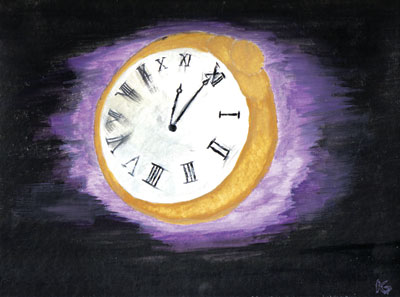All Nonfiction
- Bullying
- Books
- Academic
- Author Interviews
- Celebrity interviews
- College Articles
- College Essays
- Educator of the Year
- Heroes
- Interviews
- Memoir
- Personal Experience
- Sports
- Travel & Culture
All Opinions
- Bullying
- Current Events / Politics
- Discrimination
- Drugs / Alcohol / Smoking
- Entertainment / Celebrities
- Environment
- Love / Relationships
- Movies / Music / TV
- Pop Culture / Trends
- School / College
- Social Issues / Civics
- Spirituality / Religion
- Sports / Hobbies
All Hot Topics
- Bullying
- Community Service
- Environment
- Health
- Letters to the Editor
- Pride & Prejudice
- What Matters
- Back
Summer Guide
- Program Links
- Program Reviews
- Back
College Guide
- College Links
- College Reviews
- College Essays
- College Articles
- Back
Fate vs Free Will
With a world full of worries and fear, it’s no surprise that the future captivates people. Some have become convinced that the future is already determined, and nothing we do will change its outcome. Others believe that we have free will, and our actions shape the future. Whichever philosophy they believe, however, the future will always be unknowable - no one can ever be truly sure how time works. All we can see are possibilities, and from our perspective, it’s our job to choose which becomes true. In our own minds, we have complete free will, up until the point when we start believing in fate and surrendering responsibility to the forces of time or destiny. Essentially, if you believe that you don’t have free will because of fate, you won’t because you will no longer consider your actions and choices to be voluntary.
Stephen Hawking in “Is Everything Determined?” argues that “...It would seem that everything in the universe would then be determined by evolution according to the laws of science, so it is difficult to see how we can be masters of our fate,”. Everything in the universe acts by the laws of physics, and the future is theoretically predictable if one factors in all the variables. Perhaps his view is right and everything is a machine. Or perhaps the Tralfamadorians, an alien race in Kurt Vonnegut’s Slaughterhouse 5, are correct when they say that all of time exists at once. No matter how many theories we invent, there is no way that we can ever know the truth for sure.
When Billy believed the Tralfamadorian theory of time, he was apathetic and listless. When Billy was about to die, he dismissed the police offering to protect him and said, “‘No, no. It is time for you to go home to your wives and children, and it is time for me to be dead…’” (142). The people who were full of spirit were those who took responsibility for themselves and their actions. Resigning yourself to whatever fate throws at you means you’ve given up on life. Even if some unknown event is meant to happen in the future, you might as well choose (or at least think you’re choosing) what that something is going to be. Maybe it’s even already happened or you were fated to do it all along.
My old neighbors had a yard with an electric fence to contain their dog. Picture this dog, who doesn’t know about the fence. It’s happy, and never tries leaving. It can never see if there’s an electric fence or not, just as you will never know if time is predetermined or not. The possibility of a fence it doesn’t know about doesn’t make the dog’s decision to not escape any less important, like you making your own life choices and saying they were made in free will despite the possibility of it being fate. If the dog was convinced there was an electric fence, and didn’t leave because of it, it’s no longer the dog’s free will to stay, because it thinks a fence is holding it in - same as if you blame your choices on time being inevitable. You only have free will if you think you do.

Similar Articles
JOIN THE DISCUSSION
This article has 0 comments.
